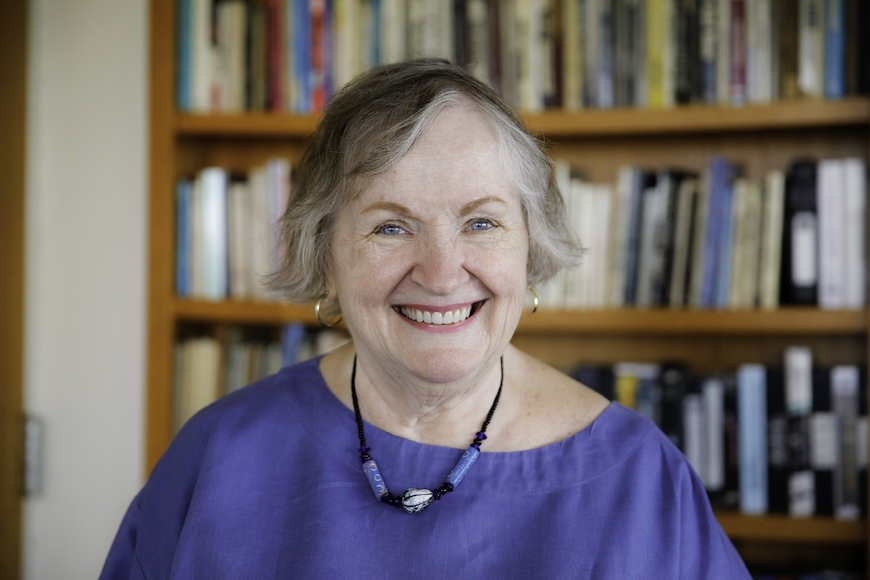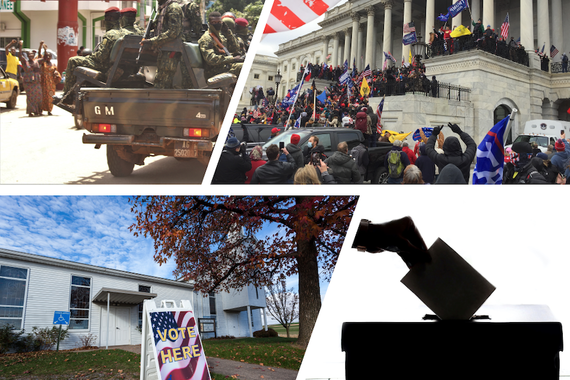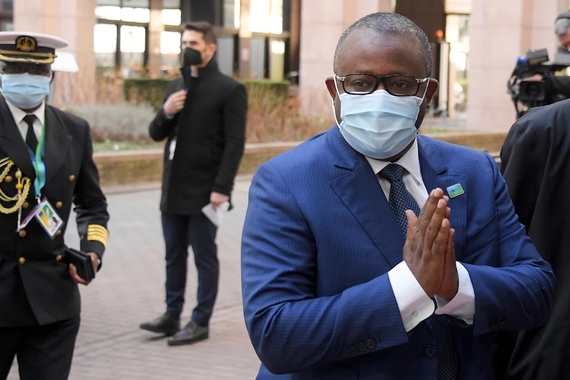Shining Light on the “Dark Continent”
Africa was originally dubbed the “Dark Continent” by Welsh journalist and explorer Henry Morton Stanley, who saw Africa as mysterious. Its landscapes and cultures were largely unknown to many outsiders until the late nineteenth century. The lack of knowledge of major and minor complex accomplishments of African people continues today. African American & African studies Professor Victoria Bomba Coifman works to learn more and spread knowledge about Africa's fascinating heritage.
Bringing African History to the Table
Coifman studies the migrations of Africa’s people, in particular of the Sahara and West Africa, from prehistoric times to the present day and considers the factors that motivate or force migration. Her research builds on Jan Vansina’s methodology for the use of oral traditions. Vansina defines oral traditions as “spoken accounts of the past before the present generation,” which should not be confused with oral history. “Oral history is someone like myself talking about my life or about events taking place during my lifetime,” Coifman explains.
The oral tradition methodology involves interviewing individuals or groups about the heritage and traditions of a place, using relevant archival and published sources and the findings of other disciplines, verifying their reliability, and interpreting them. Through her research, Coifman hopes to spread awareness of the heritage, history, and contributions of Africans and their descendants all over the world. “I'm bringing the history of African migrations to the table,” says Coifman. “By looking at African migrations both within Africa and across the Atlantic, carried in the minds of African ancestors moving freely or in the most difficult of circumstances, slavery, we can trace this African heritage down to the present. And we’re just beginning to appreciate that.”
In other words, Coifman is exploring the knowledge people brought with them carried in their minds and memories. The varied aspects of the African heritage were “passed down through oral traditions. Technological information, for example, related to the domestication or modifications of certain plants and animals, was transmitted through oral traditions, observation, and practice. Sometimes written records were kept too.” She concludes, “Collecting oral traditions is important because they tell us the questions African people asked of their own pasts.”
“Working with oral traditions has forced me to be quiet and listen,” she explains. “I think of it now as understanding the geography of someone's mind about their past, and it was not for me to jump in there. One has to listen, think, and reflect. In fact, it's an honor to be involved with this kind of work.”
Understanding the Geography of Someone’s Mind
Coifman has collected oral traditions from families that date back from the eleventh century up to the late nineteenth century in northwestern Senegal and southwestern Mauritania. Within Senegal, Coifman conducted research in the history of two former states that belonged to the Wolof people. One of the families that she interviewed were historians of the former ruling line in the Wolof State of Jolof. In another former Wolof state, Waalo, she interviewed a family who had a different social status. They were of the former ruling lineages. “This gave me two different kinds of historical oral traditions, from two different kinds of families and in two different Wolof states,” she explains.
By collecting oral traditions and using written sources and findings from fields like anthropology and archaeology, she has discovered that over thousands of years, African people have developed knowledge and institutions that allow for successful migrations and foreign relations. This knowledge of migration and managing relations with strangers across various borders was then carried with some Africans as slaves in the era of the Atlantic Slave trade, in their “suitcases” of memory during the Middle Passage to the Americas. As they had done earlier and in other circumstances both within Africa and beyond, African ancestors brought with them a rich experience and heritage of ease in conducting migrations. And, perhaps history will show, usually peacefully.
Knowledge and Appreciation
Coifman hopes that her research will help people understand the importance of gaining knowledge about other parts of the world. “In order to get along with each other, we need to appreciate each other and in order to make good policy, we need to know each other, including the knowledge and values we carry,” she says.
She hopes that more people will seek to understand African history and steer away from labeling Africa as the “Dark Continent.” She explains that while everybody knows about the US, the US doesn't know about Africa, which causes a serious imbalance. “We ought to know so much more than we already do so that we can meet face to face, equal to equal.”
This story was written by an undergraduate student in Backpack. Meet the team.



